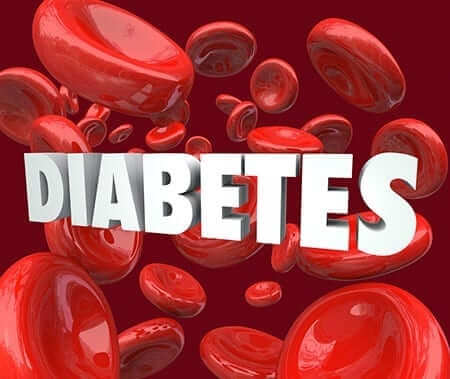Several vascular issues have been linked to diabetes. Too much glucose in your bloodstream can lead to vascular disease and complications. Learn more about diabetic vascular disease and what you can do to help prevent serious problems.
- Because the body does not produce or use insulin efficiently a person with diabetes is susceptible to developing diabetic vascular disease. Blockages can form throughout the arteries, often referred to as “hardening of the arteries”. This condition makes you more prone to coronary heart disease, high cholesterol, and high blood pressure. Other vascular diseases have also been linked to diabetes. Neuropathy is a condition of the nerves that causes a lack of sensation in areas such as the fingers, feet, and toes. Retinopathy is the abnormal growth and bleeding of blood vessels in your eyes. Nephropathy is a reduced kidney function complication linked to diabetes. The best way to prevent these health issues is to control your blood sugar and schedule regular exams with your diabetic health care team.
- Symptoms of diabetes-related vascular problems may include floating spots in your vision, swelling of your limbs or face, unanticipated weight gain, blurry vision, and foamy urine. Other symptoms may include pain in your legs when walking, loss of feeling or a burning sensation in your feet or hands, foot sores, chest pain, and high blood pressure. Use a blood pressure monitor to check your blood pressure regularly and report unusual results to your health care team immediately. Watch for symptoms of heart problems including shortness of breath, swollen ankles, chest pain, and an irregular heartbeat.
- There are ways to help control or prevent the development of vascular issues with diabetes. Keep your blood pressure controlled. Avoid foods with excessive salt, fat, and/or sugar. Exercise for at least 30 minutes a day, 5 times a week. Maintain a healthy weight. Losing between 7-10 percent of your overall body weight can make a significant difference. Quit unhealthy habits, such as smoking, that are linked to high blood pressure, blood vessel damage and other heart-related problems.
- Several tests may be performed to determine if you have heart problems. Your doctor will ask questions about your general health, symptoms, and medical history. A blood test is done to verify your glucose level. You may also be referred to various physicians since diabetic vascular disease can affect different locations in your body. These physicians can include endocrinologists, cardiologists, ophthalmologists, nephrologists, podiatrists, dentists and vascular surgeons. If diabetic kidney disease is suspected a urine test to check albumin levels may be ordered. You may also have tests which involve leg function including treadmill testing, duplex ultrasound and/or ankle/brachial index (ABI). Tests might be done to measure your blood fats (lipids) and cholesterol level. Schedule all required tests and verify the results get shared with your heath care team.
- Treatment of vascular problems includes controlling high blood pressure, maintaining healthy blood sugar levels and controlling lipid levels through diet, exercise, and medications. Certain medications can be used to control blood sugar levels, lower blood pressure, and reduce the cholesterol in the blood. Maintain a healthy daily diet that includes whole grains, low-fat dairy, lean meats and fish as well as plenty of vegetables and fruits.
- Peripheral arterial disease (PAD) may cause sores to develop on your feet. Dressings and antibiotics might be used to help them heal. Check your feet daily for sores, swelling, blisters, and other irritations and report them to the doctor right away. Keep your feet clean, dry, and protected to avoid injuries. Monitor your blood sugar levels several times a day and keep a journal of the results to share during medical exams. If your circulation is poor your surgeon might recommend surgical procedures such as bypass surgery or leg angioplasty to reduce the problem of blocked arteries.
Having diabetes does not mean you will develop cardiovascular issues. Proper health maintenance including a balanced diet, daily exercise, and scheduling routine health care appointments can make a difference. Take care of your heart today and it will keep you moving forward tomorrow.







Leave A Comment